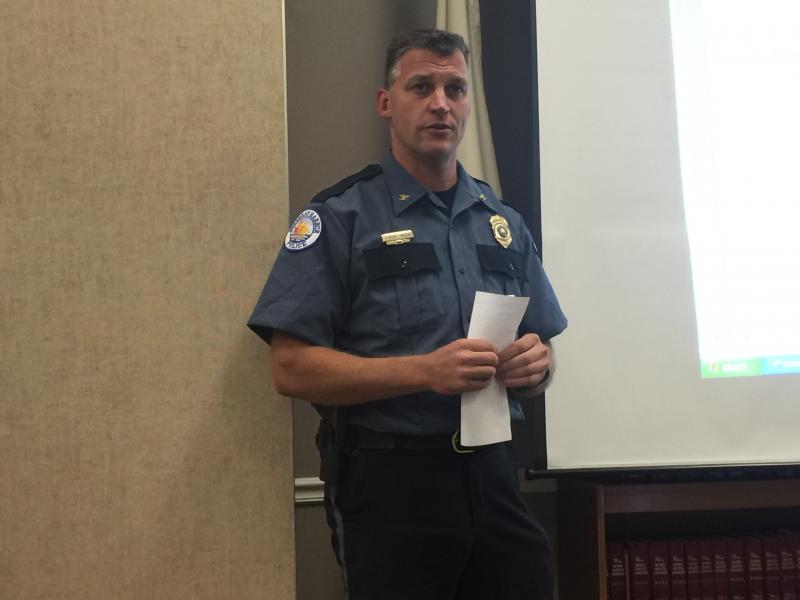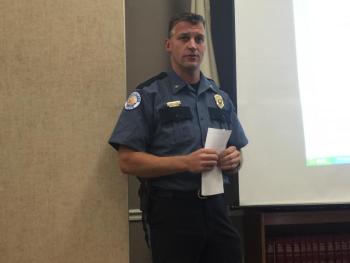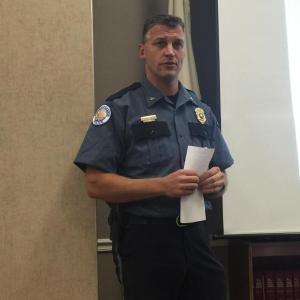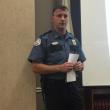Opioid epidemic hits home in Boothbay Harbor
The opioid abuse epidemic is here and not going away anytime soon, according to Boothbay Harbor Police Chief Robert Hasch in comments to the Boothbay Harbor selectmen Sept. 12. Hasch along with Lincoln Health’s Anni Pat McKenney outlined the ongoing community efforts to combat the problem which Hasch called devastating and without precedent.
“Whether you know or not, someone you see everyday is struggling with this crisis,” said Hasch. “We are dealing with this every single day.”
In his presentation, Hasch discussed the numerous procedures his staff takes when an individual seeks help. While a police station is not the first stop for many drug addicts, the force has been trained to assist those in desperate need of help. It’s a function of both compassion and necessity; the number of people between the ages of 18-35 who are dealing with opiod problems is mind-boggling, said Hasch.
“Yes, these people are breaking the law by putting illegal drugs in their bodies,” he said. “However we have an opportunity to help.”
The outreach effort is part of a larger community effort to stem the tide of rampant abuse of both prescription drugs and heroin. Maine has the highest rate of prescription opiate addiction in the country, according to research by American Board of Addiction Medicine. As of July, overdose deaths have jumped nearly 31 percent from the previous year. The scourge is a problem statewide and locally where overdoses are so common, each member of the Boothbay Harbor Police Department carries Narcan, the life-saving prescription medicine that blocks the effects of opioids and reverses an overdose. The approach for Hasch was to start a dialogue with community resource leaders and addicts themselves, an invaluable source of information from those who know addiction the best.
“Surprisingly, most addicts are open to receiving help,” he said. “They realize they have a problem.”
Rather than arrest their way to a solution, the approach has been to help addicted individuals find the resources they need. If a person comes to Hasch or any member of the police force, a process is in place to help them. First, a discussion of their issues takes place followed by identifying a support system for the individual. Eventually the individual is connected to a treatment facility for detoxification.
“Imagine having the worst flu of your life combined with your worst mental health day,” said Hasch. “That’s what coming off these drugs is like.”
One goal is to have a rehabilitated addict re-enter the community as a functioning, productive person. Both Hasch and McKenney have seen examples of people turning their lives around.
“Often times these are very bright people,” he said. “I know we have a problem finding seasonal workers in the region and this could be a solution. They want to have a job and feel good about their lives.”
Since the initiative began three years ago, many members of the community have approached Hasch and offered to help.
“We’ve cobbled together a good collection of help and support,” he said. “A whole lot of people have come forward and offered assistance. No one likes feeling powerless. We want to do more with public outreach, that’s the way the public can help.
Selectman Wendy Wolf thanked Hasch and asked what if any assistance the town could provide.
“Your leadership on this has been important,” said Wolf.
In moving forward, Hasch envisions hiring a full-time support person through private funds to help with a sustainable effort to keep addicts clean.
“It’s about believing in people, not problems,” he said.
Event Date
Address
United States


























